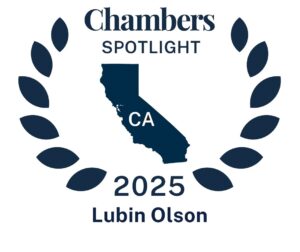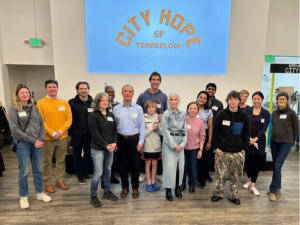On June 28, 2024, the United States Supreme Court reversed the decision of the Ninth Circuit in City of Grants Pass, Oregon v. Johnson and ruled that the Cruel and Unusual Punishments Clause in the Eighth Amendment has no application to anti-camping laws that commonly exist in local jurisdictions. For a summary of the history of Eighth Amendment law as applied to homelessness that led to the decision in Grants Pass, see the link to my prior post here.
This landmark decision will restore authority to local governments to seek legislative solutions to homeless encampments. For any owner of property or operator of a business that has been affected by such encampments, Grants Pass presents a new opportunity to work with local officials to seek relief. However, litigation will not end, and the policy debates will only increase as local governments examine and debate what practical steps to take, or not take.
The decision in Grants Pass was a 6-3 ruling and reversed the Ninth Circuit’s opinion in Johnson v. City of Grants Pass, 72 F.4th 868 (2023), which had in turn followed the Ninth Circuit’s decision in Martin v. City of Boise, 920 F.3d 584 (2019), where the Ninth Circuit held that, under the Eighth Amendment, “a person cannot be prosecuted for involuntary conduct if it is an unavoidable consequence of one’s status.” Grants Pass, 72 F.4th at 893.
The Supreme Court framed the question before it as follows: “The only question we face is whether one specific provision of the Constitution—the Cruel and Unusual Punishments Clause of the Eighth Amendment—prohibits the enforcement of public-camping laws.” (Op., at 31.) The Court then reframed the question and answered in the negative: “Homelessness is complex. Its causes are many. So may be the public policy responses required to address it. At bottom, the question this case presents is whether the Eighth Amendment grants federal judges primary responsibility for assessing those causes and devising those responses. It does not.” (Op., at 34.)
In so doing, the Supreme Court effectively endorsed the view of civil rights icon Justice Thurgood Marshall in Powell v. Texas, 392 U.S. 514 (1968), wherein he explained that the Constitution does not tie the hands of the States in their efforts to govern the quality of life on city streets in the face of widespread drug and alcohol problems:
It would be tragic to return large numbers of helpless, sometimes dangerous and frequently unsanitary inebriates to the streets of our cities without even the opportunity to sober up adequately which a brief jail term provides. Presumably no State or city will tolerate such a state of affairs. (Id. at 528-29.)
But not everyone shares that view, as the dissent in Grants Pass encouraged the assertion of new constitutional theories to perpetuate Martin-style litigation, just on different grounds:
The Court wrongly concludes that the Eighth Amendment permits Ordinances that effectively criminalize being homeless. Grants Pass’s Ordinances may still raise a host of other legal issues. Perhaps recognizing the untenable position it adopts, the majority stresses that “many substantive legal protections and provisions of the Constitution may have important roles to play when States and cities seek to enforce their laws against the homeless.” Ante, at 31. That is true. Although I do not prejudge the merits of these other issues, I detail some here so that people experiencing homelessness and their advocates do not take the Court’s decision today as closing the door on such claims.
(Sotomayor, J., dissenting, at 25.) The dissent then proceeds to list various means by which litigation against anti-camping laws may be continued, including whether such laws violate (1) the Excessive Fines Clause of the Eighth Amendment, or (2) the Due Process Clause of the Fifth and Fourteenth Amendments. (Id., at 27-28.)
The dissent concludes: “It is quite possible, indeed likely, that these and similar ordinances will face more days in court.” (Id., at 29.)
While the dissent is likely correct that such ordinances will face more days in court, the dissent is likely mistaken as to such days in court being premised on a revival of the Ninth Circuit’s Martin rule under the guise of some other constitutional theory. Such an effort would seem to lack the good faith expected of lower courts in implementing Supreme Court rulings. However, there are potentially valid means of impeding the efforts of local governments to implement their laws.
Most significantly, as noted by the dissent, various federal courts have ruled that a local government that seeks to clean up a homeless encampment must make reasonable efforts to protect the property of homeless persons in the encampment. (See, e.g., id., at 29, citing Lavan v. Los Angeles, 693 F.3d 1022, 1029 (9th Cir. 2012).)
In ongoing litigation in the Northern District of California, a federal court, prior to the Supreme Court’s decision, had enjoined the City and County of San Francisco both from enforcing its anti-camping laws under the Eighth Amendment and from taking certain actions with respect to the property of homeless persons under the Fourth Amendment. After the Supreme Court’s decision, the Ninth Circuit vacated the portion of the injunction blocking enforcement of anti-camping laws, but left in place the portion of the injunction related to San Francisco’s “bag and tag” policy for property of homeless persons. Coalition on Homelessness v. City and County of San Francisco, 2024 WL 3325655 (9th Cir. July 8, 2024).
Accordingly, while a local government may have substantive authority to enforce anti-camping laws and clean up an encampment, it may run into procedural roadblocks as to how to go about doing it. In the San Francisco litigation, the Coalition on Homelessness, represented by a large international law firm, has stated its intent to continue litigating its claims against the City, and, moreover, even add new claims “regarding the City’s failure to provide shelter or housing in its encampment practices.” Coalition of Homelessness v. City and County of San Francisco, Case No. 4:22-cv-05502-DMR (LJC), Docket No. 230, Joint Case Management Statement, at 7. Under an existing preliminary injunction and related orders, the City is required to give 72-hours advance notice of any homeless encampment operation, produce body camera footage of any arrest and all related incident reports, bag and tag all personal property, undertake training for City workers and produce all training materials, and do so every three weeks, among other things. Such requirements add substantial time and expense to any effort to clean up a homeless encampment and raise the specter of additional litigation in so doing.
In addition to the cost of litigating the cases, a local government faces the added risk of being required to pay the plaintiff’s attorneys’ fees and costs if it is found to have violated any constitutional right of a plaintiff (42 U.S.C. § 1988) or if the court finds that the litigation conferred a significant benefit on the general public on a matter affecting the public interest (Cal. Code Civ. Proc. § 1021.5). Perhaps the most well-known example of such fee awards arose in the context of the multi-decade prisoners’ rights litigation. See, e.g., Validivia v. Schwarzenegger, Case No. 94-cv-00671-LKK-GGH, Docket No. 1118, at * 3 (E.D. Cal. Sept. 17, 2004) (awarding $6.5 million in attorneys’ fees to plaintiffs’ counsel).
Thus, from the perspective of local governments, they now have the authority to address homeless encampments, but still face the prospect of expensive litigation by well-funded homeless organizations and their advocates who may contest the means by which homeless encampments are cleaned up.
However, influenced by the Supreme Court’s decision in Grants Pass, the tenor of the political discourse surrounding issues of homeless encampments has changed. For example, the Governor of California, Gavin Newsom, issued Executive Order N-1-24 in which he ordered departments under his authority to adopt policies to address encampments on state property, including removal of such encampments with 48-hours notice and storage of personal property for at least 60 days. In the recitals to this order, Governor Newsom approvingly observes that “in June 2024 the Supreme Court overturned Ninth Circuit Court of Appeals precedent that restricted the government’s authority to enforce laws regulating encampments, recognizing that jurisdictions may tailor their enforcement practices to reflect policy-driven approaches to addressing homelessness” (a copy of the Executive Order is appended to the end of this article). Such recitals reflect the evolving political landscape, as further evidenced by this post-Grants Pass statement of the Mayor of San Francisco:
This decision by the Supreme Court will help cities like San Francisco manage our public spaces more effectively and efficiently. San Francisco has made significant investments in shelter and housing, and we will continue to lead with offers of services from our hard-working City employees. But too often these offers are rejected, and we need to be able to enforce our laws, especially to prevent long-term encampments. This decision recognizes that cities must have more flexibility to address challenges on our streets.
Statement of Mayor London Breed on June 28, 2024. https://www.sf.gov/news/mayor-london-n-breed-supreme-court-decision-grants-pass
It remains to be seen whether, post-Grants Pass, the lower courts will be more inclined to defer to the political judgments of local jurisdictions or whether a continuing affinity for the interventionist Martin approach will cause lower courts to endorse other means of intervening in local homelessness issues. If courts are inclined to the latter tendency, there is no shortage of possibilities by which roadblocks could be enacted to the efforts of local jurisdictions to address homeless encampments. For example, in Coalition on Homelessness v. City and County of San Francisco, 93 Cal.App.5th 928 (1st Dist. 2023), the California court of appeals ruled that the City could not tow and impound vehicles with five or more unpaid parking tickets, without first procuring a warrant. Id. at 437. The City contended that, if such towing was not allowed, vehicle owners could ignore parking laws “with impunity” and thus imperil the public health and safety. Id. at 444. The court of appeals was unpersuaded, finding that the city would have to follow the elaborate statutory scheme for obtaining and enforcing court judgments. Id. at 444-45. Thus, the process of removing vehicle encampments may face challenges.
Not every local jurisdiction endorsed Governor Newsom’s call to action, with Los Angeles officials being notably unenthusiastic about his Executive Order. In response to the lack of action from some local jurisdictions, Governor Newsom has threatened to withhold funding in next year’s state budget, in some unexplained manner, from those jurisdictions that do not make a good faith effort to act in accord with his Executive Order. How such political dynamics will evolve remains to be seen.
For property owners, the question thus remains as to how to prompt action by the local jurisdiction in the first instance. Many times a local jurisdiction may be too busy to act, may be indifferent, or may be actively opposed to cleaning up encampments from a philosophical standpoint. In such instances, some property owners have filed lawsuits against cities or other jurisdictions to try to compel action. Most of these cases appear designed to try to prompt voluntary action by the local jurisdiction, and their legal merits are largely untested. However, there is a significant potential roadblock to such suits in the doctrine of “discretionary immunity,” by which a suit against a governmental entity is barred if it involves a policy decision of the entity—such as whether to expend taxpayer funds to remove a homeless encampment. In one unpublished decision, a court of appeals ruled that a suit by an association in Venice Beach against the City of Los Angeles that sought to compel the city to clean up the effects of homelessness in the area was barred by discretionary immunity. Venice Stakeholders Ass’n v. City of Los Angeles, 2018 WL 3045576 (2d Dist. June 20, 2018).
As long as homelessness continues to impact communities, courts will continue to struggle with balancing the rights of the homeless with the rights of local jurisdictions to provide for the general welfare of the communities, including the residents and businesses who must contend with the effects of homeless encampments. Grants Pass restores much of the authority of local jurisdictions to make the necessary policy judgments, but litigation will go on.
Click here for Executive Order of Gavin Newsom.
Related Attorneys
Related Services





